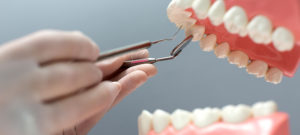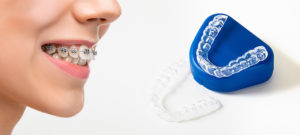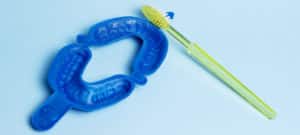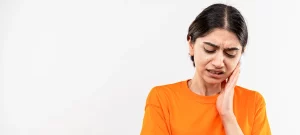5 Easy Ways to Stop Grinding Your Teeth
Do you constantly wake up in the morning with a sore jaw, headache, or painful teeth? If yes, chances are that you are unconsciously clenching or grinding your teeth at night. Teeth grinding, also known as Bruxism, is a common condition and affects around one in every three people for at least some part of their life.
The majority of people don’t even realize they grind their teeth because it happens only at night while they sleep. While it is normal to occasionally clench your teeth, sustained and chronic grinding can lead to serious consequences for your dental health. Mild bruxism may not require treatment; however, severe bruxism can result in enamel loss, loosening and fracturing of teeth, and receding gums. In some cases, bruxism can lead to temporomandibular joint disorder (TMJ), which causes pain and dysfunction in the jaw joint.
The good news is that there are things you can do to stop grinding your teeth while sleeping and maintain your healthy pearly whites. Read on to learn five ways to prevent bruxism from happening.
Wear a Mouthguard
The most common treatment to prevent teeth grinding is to use a mouth guard. They work by cushioning your teeth and can protect you from the adverse effects of grinding or clenching your teeth, especially in the nighttime while you sleep. Wearing a mouth guard will also reduce jaw strain. You can buy mouth guards over-the-counter or your dentist can fit you with a mouth guard, which is customized to your bite so it is comfortable and easy to wear.
Try Jaw Exercises
Exercising the tongue and jaw muscles can help relax the jaw and facial muscles. They work to relieve the clenching and help maintain proper alignment of your jaw. One simple exercise is to say the letter “N” out loud. This keeps your top and bottom teeth from touching and will help avoid clenching. You can also try lightly massaging your jaw to loosen up the muscles.
Reduce Stress
Stress, depression, and anxiety cause many people to clench or grind their teeth. Managing your stress may not only ease your bruxism but can also benefit your overall health. One of the best ways to de-stress is to exercise, consider adding a few sessions of running or working out. Practicing yoga, meditation, or breathing exercises can also help reduce stress and anxiety.
Stop Chewing Everything but Food
Do you have a habit of biting your pen while you work? Do you chew gum all day or love chomping on ice cubes? You need to stop as these repetitive motions train your muscles to clench and instigate grinding. Give your jaw muscles a temporary break from being overworked by opting for softer food and avoiding foods that are chewy, sticky, or crunchy.
Correct Your Bite
Some people suffer from bruxism because of the way their teeth are aligned. Misaligned, crooked, or crowded teeth and gaps or missing teeth can cause muscles to work harder as they try to bring your teeth and jaw into alignment. Reductive coronoplasty is an effective dental procedure used to reshape or level out the surface of your teeth. Crowns, veneers, and Invisalign® and ClearCorrect® aligners can also help rebalance your bite comfortably and discreetly.
Stop Your Teeth Grinding and Clenching Habits
Even though teeth grinding and clenching is common, it’s a tough habit to break especially for nighttime teeth grinders. If you know you grind your teeth or have any symptoms of bruxism, call or schedule an appointment online at risio.in. At Risio, we can examine your teeth for wear, gum recession, and other signs of grinding and clenching. It is important to get early bruxism treatment to avoid significant dental complications.







